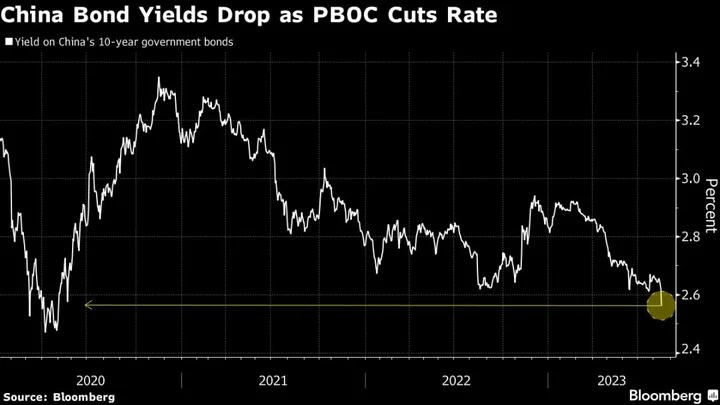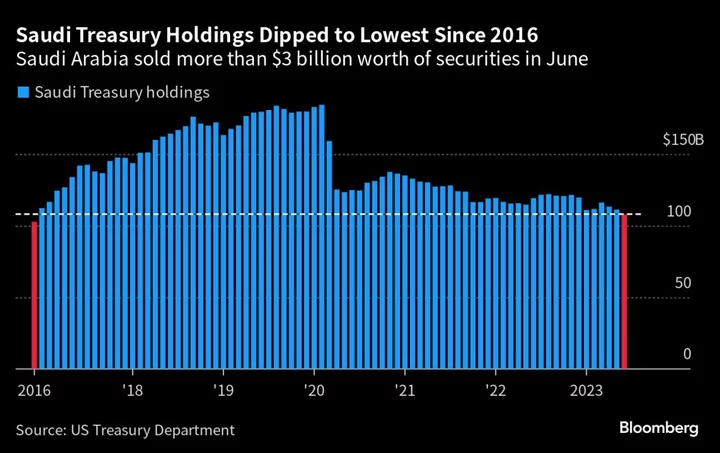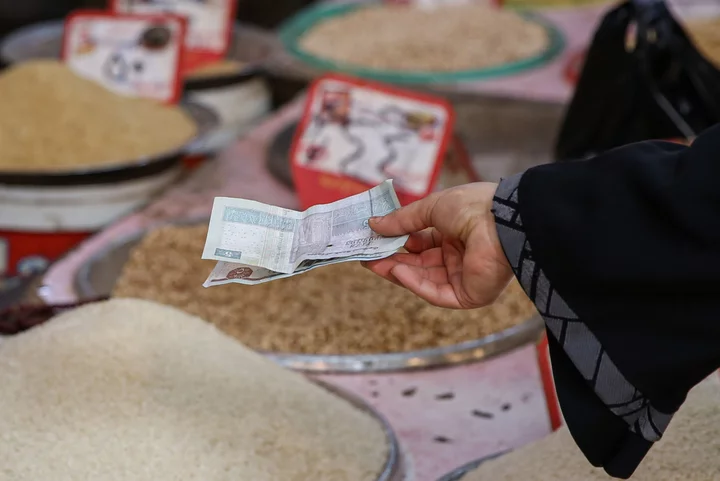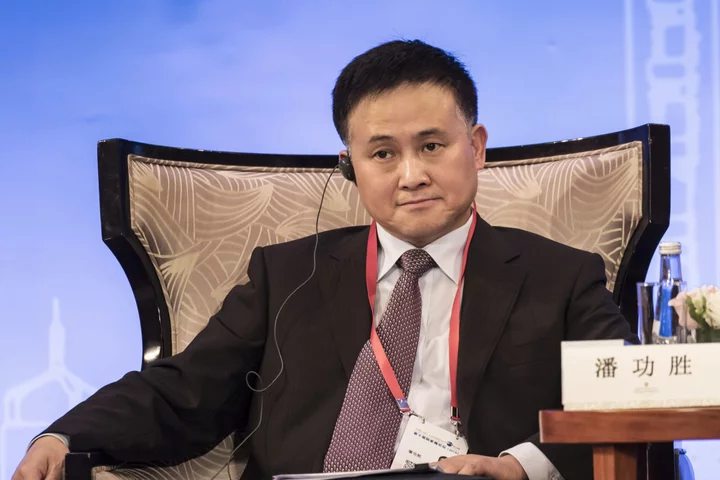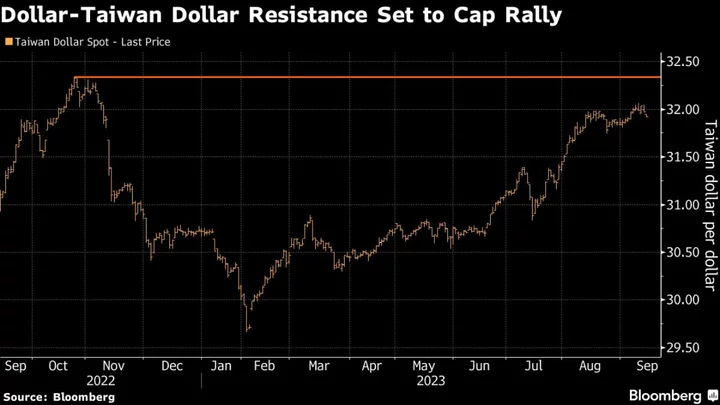China’s benchmark yield dropped to the lowest in more than three years and the yuan slid, after the central bank unexpectedly cut a key interest rate amid signs of further economic weakness.
The 10-year yield dropped seven basis points to 2.56%, while the yuan weakened in both onshore and offshore trading. The People’s Bank of China lowered the rate on one-year loans by 15 basis points to 2.5% on Tuesday and it also cut a short-term policy rate, just minutes before a slew of weaker-than expected economic data further impacted sentiment.
Whether the rate cut will be able to repair the intensifying bearish sentiment toward Chinese assets remains an open question for investors. A gauge of Chinese stocks traded in Hong Kong is the worst performer this month among 92 global equity indexes tracked by Bloomberg.
The disappointing data add support to those predicting even more stimulus is needed from the PBOC before investor confidence returns, such as a reduction in the reserve ratio requirement perhaps in the third quarter.
It was “a big move by the PBOC and for the yuan and the question from here is whether the growth and stimulatory aspect from lower rates outweighs the headwinds from wider US-China rate spreads,” said Rodrigo Catril, currency strategist at National Australia Bank. “The PBOC move leaves the yuan more exposed to movement in US Treasury yields.”
Ineffective Support
The yuan is trading at a nine-month low despite the central bank’s efforts to stem its losses. It pared the worst of its declines Tuesday only after some state-owned Chinese banks were seen selling dollars, according to two traders who weren’t authorized to talk about the foreign-exchange market publicly.
Policymakers have been setting their daily fixing for the managed currency at stronger-than-forecast levels since late June to little avail. On Tuesday, the PBOC said it would issue a total of 35 billion yuan ($4.8 billion) of bills via the Hong Kong Monetary Authority next week, a move that could help tighten offshore liquidity and support the currency.
While it may be futile for China to fight against a trend of broad dollar strength, it will still likely step up its defense, according to Christopher Wong, FX strategist at Oversea Chinese Banking Corp.
“I won’t be surprised either to see them do more via the fix to support the yuan,” he said. “Markets will interpret it as ‘they let go’ should policymakers do ‘less’ to contain yuan weakness.”
(Updates throughout)

